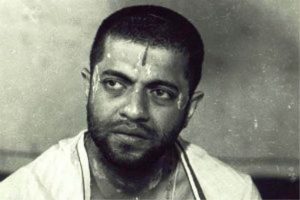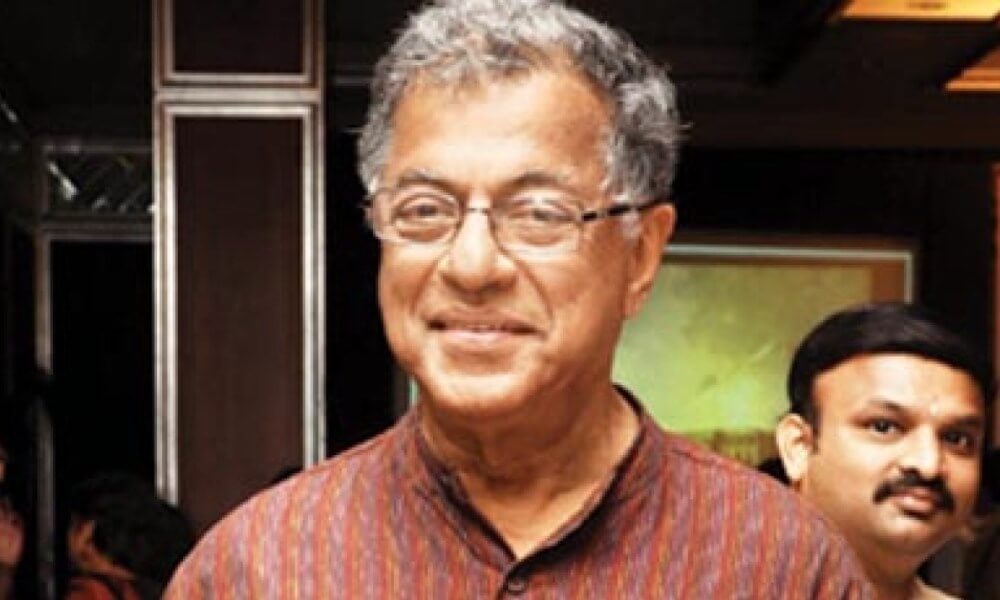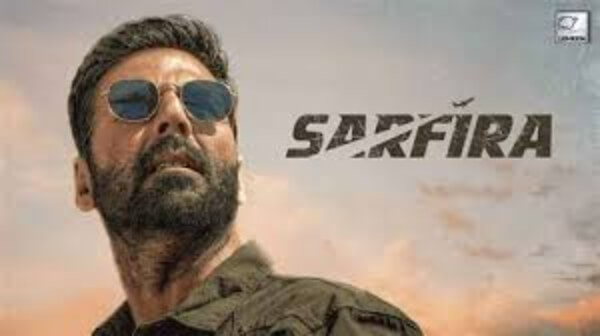Noveena and Different Truths pays tribute to the doyen of Indian cinema, Girish Karnad, who passed away last week. An exclusive.
Girish Karnad, the legendary actor passed away on June 10 (Tuesday), at 8.30AM, at his Bangalore residence. He was 81-year-old.
The 1990s generation knew him as a tough taskmaster of little Swami’s father, W.T. Srinivasan through the only accessible TV channel Doordarshan that time. Like any other father, he wants Swami to be an obedient and studious student. In the process of knowing RK Narayan’s ‘Malgudi Day’s Swami’s father, I discovered the Padma Bhushan awardee Karnad, as a great playwright, actor, director, filmmaker, thinker and an activist.
It is difficult to do justice to Karnad’s gigantic legacy in an article. He shall continue to be studied for many of his valuable contributions to art, culture and social values that require serious research.
It is difficult to do justice to Karnad’s gigantic legacy in an article. He shall continue to be studied for many of his valuable contributions to art, culture and social values that require serious research. Many of us know him for a few of his famous screen presence in films or for his strong views on contemporary political issues that made headlines. But these are at most the tip of the ice burg. Karnad was way too larger than words can describe him.
The second son of Krishna Bai and Dr. Raghunath Karnad, he was born on May 19, 1938, at Matharen, in Maharashtra, and brought up in many different districts of Karnataka, where he developed his creative and writing skills. When Girish’s father was transferred to Sirsi, Karnakata, he was exposed to Company Natakas, Natak Mandalis, Yakshgana (Carnatic folk dance) and storytelling skills. There, he read history, Puranas and also acquired the knowledge of folk-art forms.
His parents were great Marathi theatre enthusiast. Karnad grew up in such a creative atmosphere.
His parents were great Marathi theatre enthusiast. Karnad grew up in such a

creative atmosphere. After two years, Dr. Ragunath was shifted with his family to Dharwad (Saraswatpur), which was considered as the cultural capital of North Karnataka. It was his days in Saraswatpur, where he imbibed all the literature and poems. Karand was immensely influenced by the poet D.R. Bendre. It was one of the reasons probably why he later made a documentary on him. Karnad always aimed to go abroad to learn arts and literature and wanted to become a poet.
In Karnataka University, he opted Mathematics and stood first in the college. And, thereafter, as a Rhodes scholar, he went to University of Oxford, where he studied philosophy, politics and economics and became president of the Oxford Student Union. While at Oxford he wrote his first play ‘Yayati’, in 1961, which was acclaimed by the audience and readers.
The play ‘Tughlaq’ was performed in many languages and played by many renowned theatre actors like, Alyque Padamsee, Ebrahim Alkazi, Arvind Deshpandey, Shambhu Mitra and so on. His plays were largely influenced by history, political ambience and day-to-day conversations
Karnad was too keen to treat Indian history in a contemporary light. This led him to write to his popular play. ‘Tughlaq’, for which he received a massive response. He immediately got nationwide recognition. The play ‘Tughlaq’ was performed in many languages and played by many renowned theatre actors like, Alyque Padamsee, Ebrahim Alkazi, Arvind Deshpandey, Shambhu Mitra and so on. His plays were largely influenced by history, political ambience and day-to-day conversations, which was followed by the amazing art pieces and other plays Angi Mattu Male, Hayavandana, Nagamandala, Teledanda and so on.
Karnad’s powerful writing and visual sense gave him the path to debut in the films. He was a director, screenplay writer and an actor par excellence. He wrote his first screenplay for the film Samskara (1970),which won the President’s Golden Lotus for Kannada cinema. Thereafter, his directorial debut in Kannada film was Vamsha Vriksha, in 1971. It won him National Film Award for the best director. He has been associated with many prestigious Kannada films like Kadu, Tabbaliyu Neenade Manage, Odanondo Kaladalli and Heggaditi to name a few.
Along with Kannada films, he directed Hindi films like Godhuli (1977) and Utsav (1984).
Simultaneously, Karnad was exploring and was associated with Hindi movies as an actor. This includes Nishant (1975), Manthan (1976) with Shyam Benegal, the film Swami (1977) with Basu Chatterjee, Pukaar(2000), Iqbal (2005), Dor (2006), etc. His last screen presence was in the movies Ek tha Tiger along withTiger Zinda Hai.
As an administrator Karnad, served as the director of Film and Television of India, Pune, Chairman of Sangeet Natak Academy and the director of Nehru Centre
As an administrator Karnad, served as the director of Film and Television of India, Pune, Chairman of Sangeet Natak Academy and the director of Nehru Centre and Minister of Culture High School Commission, London.
Beyond the vast fields of theatre, literature and films, Karnad was always vocal for his freedom of speech and his revolutionary thoughts. He was one of the 200 artists who appealed to the citizens to vote against hate politics. He expressed his thoughts against the murders of Kalguri, activist-journalist Gauri Lankesh, and fanatic communalism. He unapologetically, raised his voice and declared himself as, ‘Me too an Urban Naxal’. In every bit, he always felt responsible to lend his voice for the oppressed and subaltern (read Dalit). Classes.
Karand raised his voiced against lynching, cow slaughtering, never shying away from his political stand.
He bagged the Sangeet Natak Academy Award (1972), Padma Shri (1972), Padma Bhushan (1992), Jnanpith Award (1998) other than several prestigious awards and recognitions.
It is impossible to comprehend a man with multidimensional talents. Bidding him adieu does not mean the end of the era of Karnad. He will be remembered, generation after generation
It is impossible to comprehend a man with multidimensional talents. Bidding him adieu does not mean the end of the era of Karnad. He will be remembered, generation after generation, for his legacy of the plethora of his art, plays, films and a huge repertoire of literature that he produced in his lifetime.
Long Live Girish Karnad!
Photos from the Internet





 By
By
 By
By
 By
By
Amazingly Written..